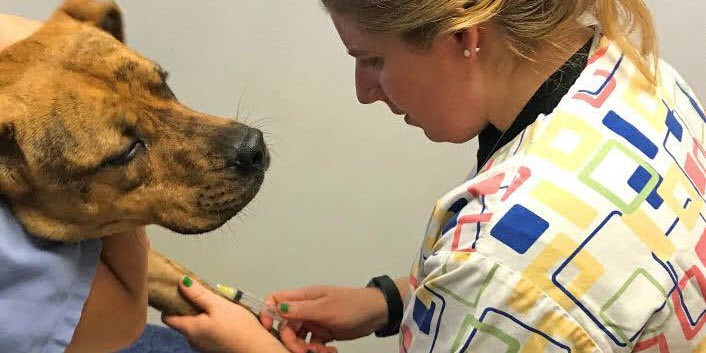
Can COVID-19 be transmitted between humans and animals?
We know that the COVID-19 virus has been spreading like wildfire in this pandemic crisis. You’ll never know when you get infected. Some fell sick and some even never realized they were infected. It’s like a game of russian roulette. The decision you make by contacting your friends or going to the shop to buy some groceries might be a risk not just for you but for the people living around you. You are also can still get infected after getting the covid-19 vaccine (vaksin coronavirus)
The safest way is to be at home at all times but it is unlikely for certain people to stay at home when work is calling and there is no guarantee that you won’t get infected from your workplace or on your journey to your workplace. Even if you have followed through with the SOP of wearing face masks and physical distancing there is a possibility you’ve touched on exposed surfaces. This is why vaccination are the most effective way for us to protect ourselves.
We know that we’ve been keeping ourselves from people but do we know if there’s a transmission between humans and animals, specifically our pets at home. Home is where we’re supposed to be protected and feel safe. But how do we really know that we’re actually safe. Being in Malaysia there are a lot of pets such as cats roaming around the neighborhood. Who can say our cats never visited any positive COVID-19 neighbor’s house? So is it really true that COVID-19 can be transmitted between humans and animals?
Cases of COVID-19 in animals
While they are still learning about the COVID-19 virus, there are reports of transmission between humans and animals in some situations. It has been reported that dogs and cats have been infected with the virus causing COVID-19 when being in close contact with a positive case patient.
Just like humans, your pets might get sick or they would not manifest any symptoms at all. Pets that have gotten sick only showed mild symptoms and were fully recovered. It is important for you to check and monitor your pets for symptoms such as:
- Fever
- Coughing
- Difficulty breathing or shortness of breath
- Lethargy (unusual laziness or sluggish)
- Sneezing
- Runny nose
- Eye discharge
- Vomiting
- Diarrhea
What To Do If You Have Pets
If you’re right now sitting on your couch with your pet on your lap or sitting at work and realizing you have a pet at home, don’t start panicking yet.
First of all you should limit your pet’s interaction with other people as they are at risk of infection if they are free to roam anywhere they want. You need to keep your pets indoors and not let them free outside.
When walking your dog, make sure it’s on a leash and keep 6 feet away from anyone else. Avoid crowded places and you should not put masks on your pets. Not only is it harmful for the pets to wear masks but it’s ridiculous.
As we’re still understanding this COVID-19 virus, there is no evidence of transmission through fur, skin or pet hair. It is not advisable for you to disinfect your pets with chemical disinfectant or other products that can harm your pets. Yes, not even hand sanitizers should be used on your pets. Check with your veterinarian on how to properly clean your pets.
What To Do If Your Pet Is COVID-19 Positive?
For your information, testing for COVID-19 is available for all types of pets but it is recommended for pets that show symptoms and have a risk of exposure with positive case patients. If your pet gets sick, speak with your veterinarian immediately.
